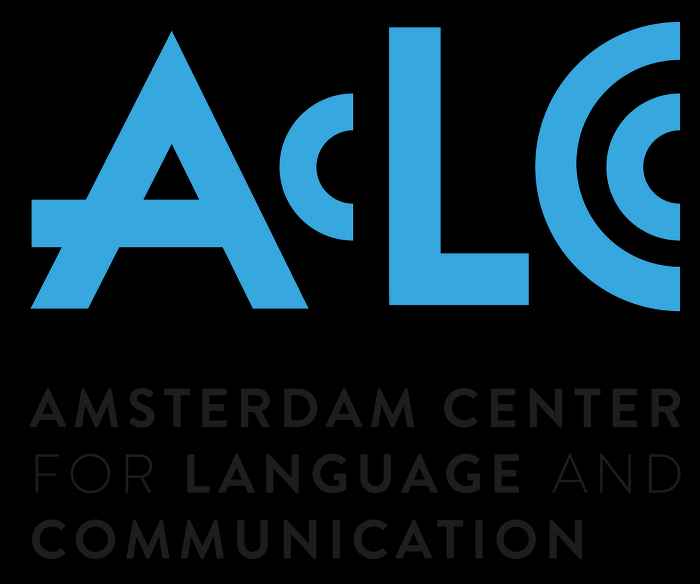ACLC Symposium | Complementation
- Date
- 13 December 2024
- Time
- 13:30 -18:00
- Location
- P.C. Hoofthuis
- Room
- 6.06

Programme
(for abstracts see below)
13.30-14.00 Kees Hengeveld – Complexity in complementation from a typological perspective
14.00-14.30 Lois Kemp – English complement clauses and evidential -ly adverbs
14.30-15.00 Martje Wijers – Reads like a breeze: Analyzing Dutch literary texts through the lens of linguistic metrics
15.00-15.30 Tea/coffee break
15.30-16.00 Hongmei Fang – Mandarin perception-verb complements: layers and properties
16.00-16.30 Thom Westveer – On what seems to be a remnant of clitic climbing in Modern French: The positioning of clitics with causatives and perception verbs
16.30-17.00 Folkert Kuiken & Ineke Vedder – Second language learners and the classification of complement clauses
17.00-18.00 Drinks
Abstracts
Kees Hengeveld: Complexity in complementation from a typological perspective
Functional Discourse Grammar (FDG), with its layered hierarchical underlying structure, offers a fine-grained classification of complement clauses. Since in FDG a semantic representation, given its recursive nature, may contain layers of any level of complexity, many interpersonal and representational layers may recur within such a frame and surface as complement clause. In this talk I study, from a typological perspective, how the degree of underlying complexity of a complement clause is reflected in its finite versus non-finite realization.
Lois Kemp: English complemnt clauses and evidential -ly adverbs
This talk explores the distribution of English evidential -ly adverbs in verbal complement clauses. It is argued that three factors determine this distribution:
- the nature of the evidential adverbs – type of source evoked;
- the nature of the verbal complement – object to a complement-taking predicate: CTP;
- the nature of the anchor of the evidential adverb: whether there is a current speaker anchor or an actor anchor.
Martje Wijers: Reads like a breeze: Analyzing Dutch literary texts through the lens of linguistic metrics
This presentation explores the correlation between inherent text complexity and the prevalence of complex constructions as outlined in the subordination hierarchy. Employing various established metrics for textual complexity – such as sentence length, word length, Type-Token Ratio (TTR), and dependent clause ratio – I will focus specifically on Dutch literary texts categorized by reviews and reader reactions as either easy/quick or difficult/slow to read. Furthermore, I will analyze whether readers' perceptions align with these two methods of measuring complexity, offering insights into the relationship between textual features and reader experience.
Hongmei Fang: Mandarin perception-verb complements: layers and properties
This talk examines the semantic and syntactic complementation patterns of perception verbs in Mandarin Chinese. Based on the complementation hierarchy proposed in Functional Discourse Grammar, Mandarin perception verbs are semantically classified into six complement-taking types. Although Mandarin lacks morphologically distinguishing forms for complement clauses, such as complementizers, infinitives, and participles, the formal distinctions among these semantic complement types of perception verbs are reflected in their syntactic properties.
Thom Westveer: On what seems to be a remnant of clitic climbing in Modern French: The positioning of clitics with causatives and perception verbs
In present-day French, object clitics of infinitives appear in front of the infinitive; clitic climbing onto the main verb is no longer possible, which was the case in older stages of French. Only a small class of predicates, causative and perception verbs, still seem to allow some sort of clitic climbing. This contribution investigates why these predicates show this behaviour by looking into the interaction between the gradual loss of clitic climbing in French and the classification of complement taking predicates.
Folkert Kuiken & Ineke Vedder: Second language learners and the classification of complement clauses
In this paper data of second language learners are analyzed in terms of Hengeveld’s classification of complement clauses. Data consist of a corpus of first and third year university students of French and Italian who performed a complex and non-complex argumentative writing task. Next to results on the nature and quantity of (types of) complement clauses found in the corpus, we will report on comparisons between students of French and Italian, between first and third year students, and between complement clauses found in the complex and non-complex task.
